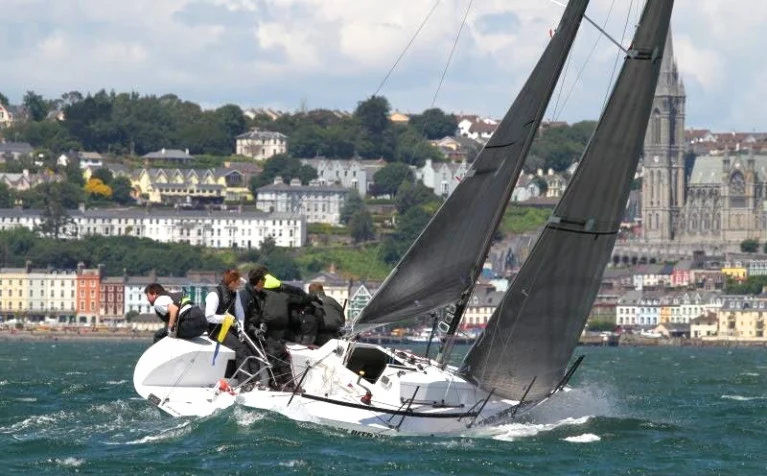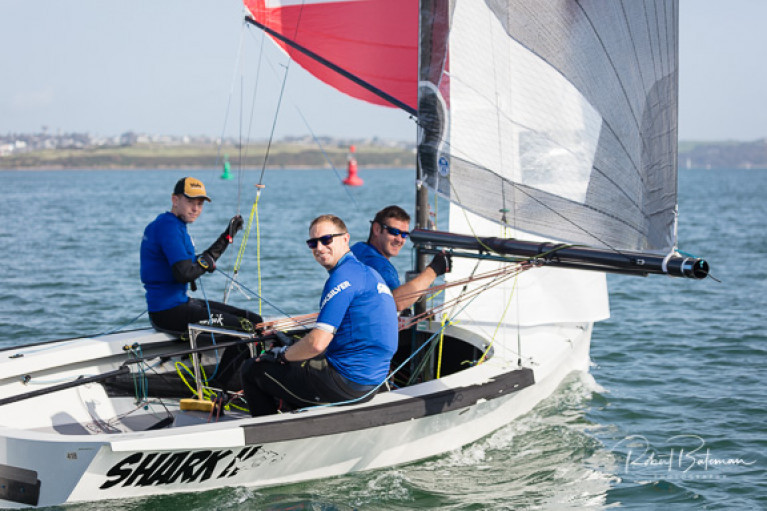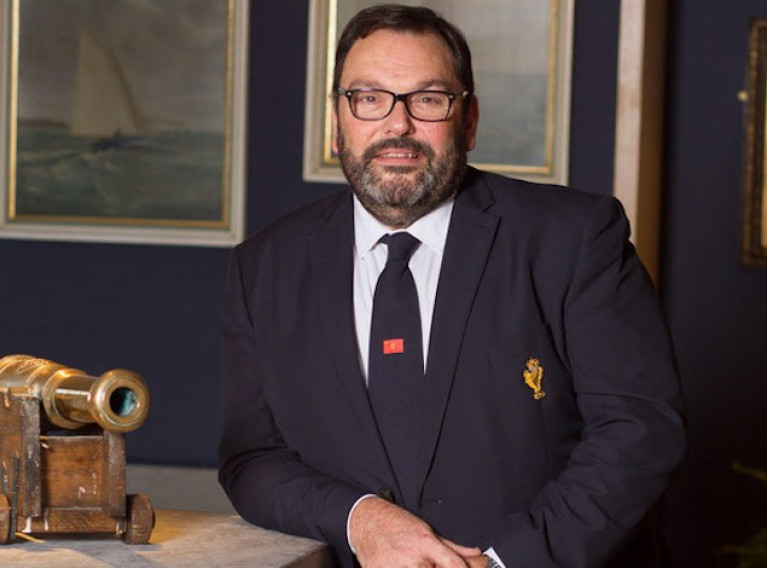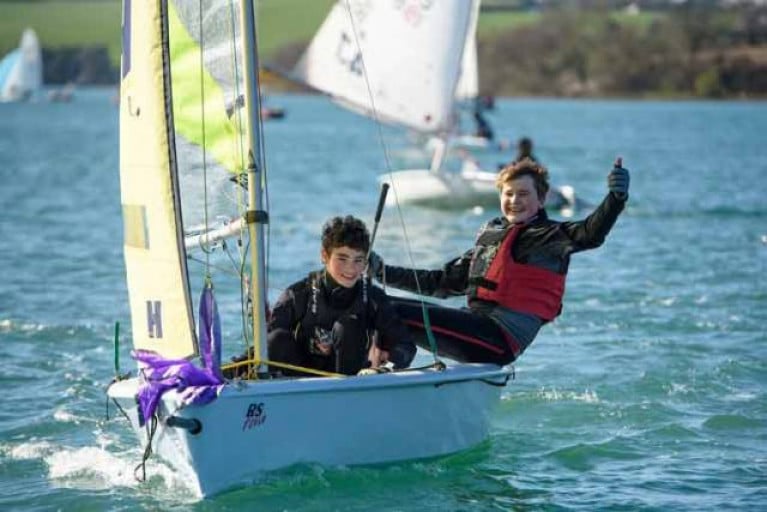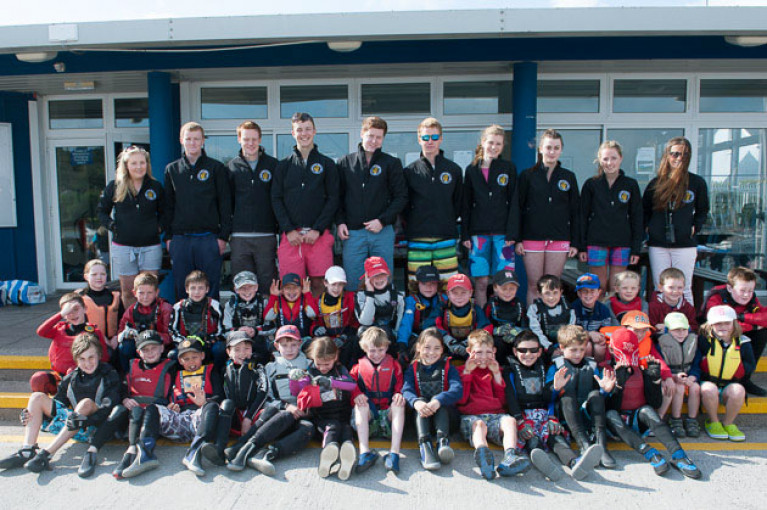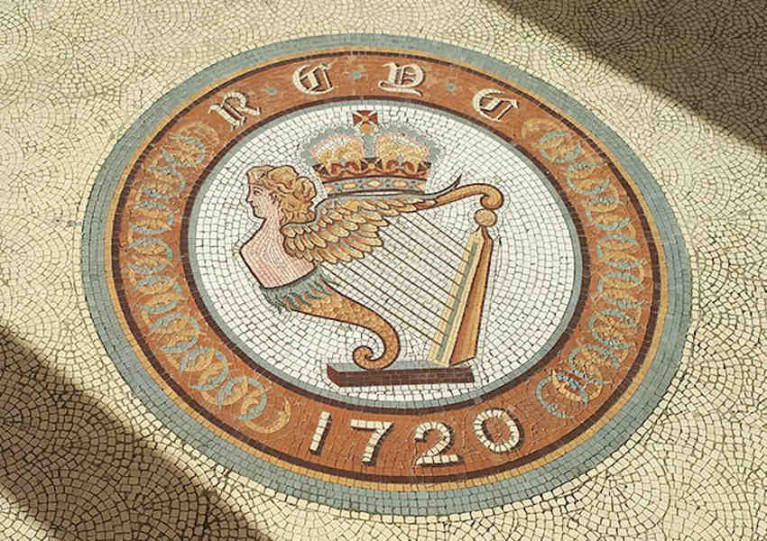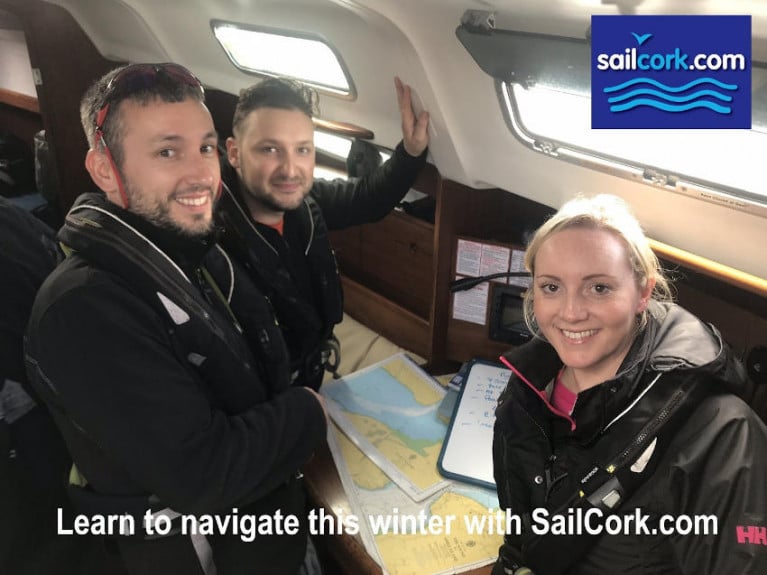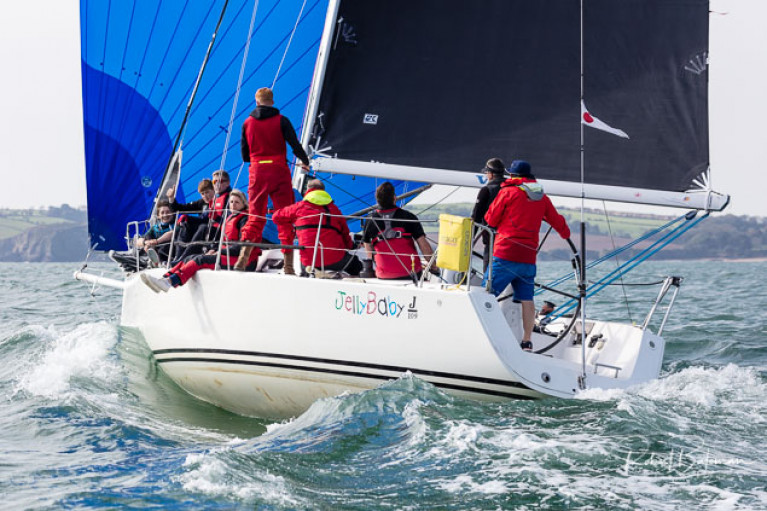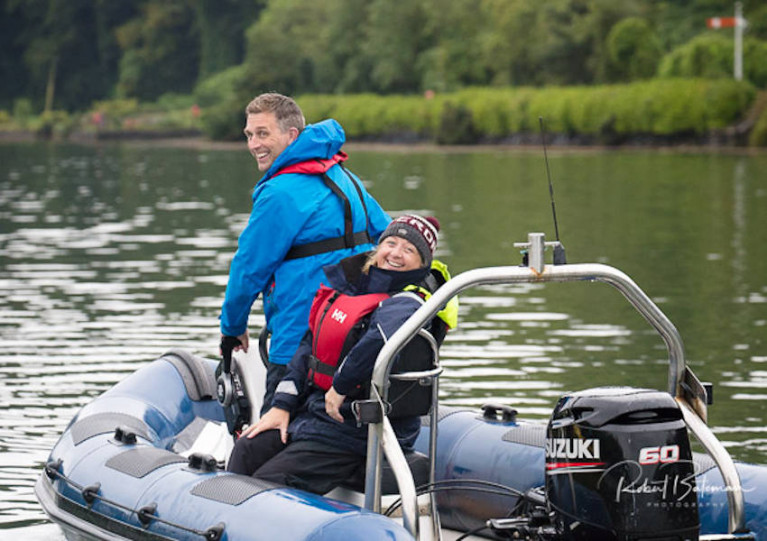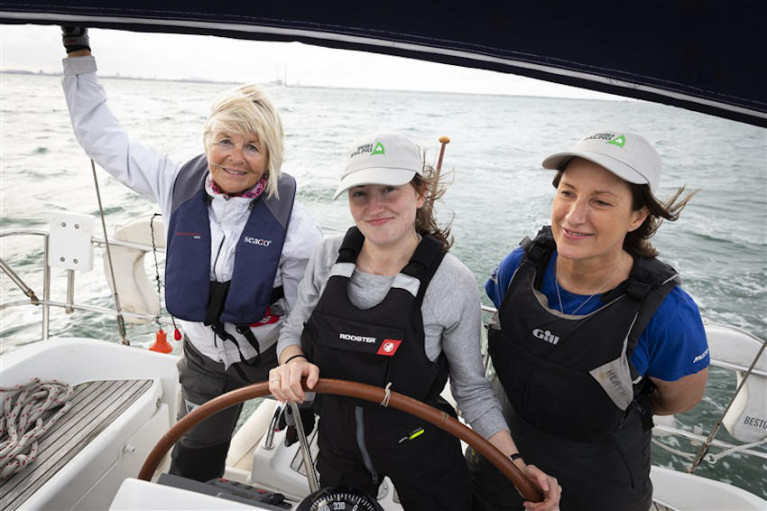Displaying items by tag: RCYC
Sailors Pay Tribute to Cork Week in New Video Series
Cork Week is a special event that holds a place in the heart of many sailors.
Over the winter months, the Royal Cork Yacht Club spent time talking to a number of sailors to understand what is it that makes the biennial regatta so special.
Now thanks to the production expertise of RL Sailing’s Pamela Lee, these many hours of video have now been edited down into short videos which will be released over the coming months.
Up first is the racing: whether it’s coastal races around the Fastnet or the famous Harbour Race, there’s something on offer for everyone at Cork Week.
And the Royal Cork looks forward to welcoming everyone back to enjoy it in 2022.
National 18’s 2021 Season in Cork Launched at AGM
The National 18’s 2021 season was launched at the Royal Cork Yacht Club class’s AGM last week.
Sailing is scheduled to start on 27 March with the PY 1000 All In Dinghy Race, followed by the first Wednesday evening league meeting on 7 April.
Among the news from the AGM was that an additional boat has been purchased from the UK and another has changed hands over the winter, meaning 15 boats will be active in and around Cork Harbour this year.
Highlights of the upcoming calendar include the National 18 Championships (Cock O’ The North) in August, the presentation of The Curlane Cup for the overall winner of the combined harbour races plus the Cork Harbour Archipelago Raid, a series of harbour point to point races which plays on the famous Swedish Archipelago Raid.
Plans are also in motion to introduce new sailors to the National 18, both young and old. For more information on the class, contact incoming class captain Charles Dwyer.
Colin Morehead, Admiral of the Royal Cork Yacht Club, which celebrated its 300th birthday last year, has been named as Cork Person of the Month for January 2021.
At the Cork Harbour club's 300th AGM, Colin Morehead was elected the 42nd Admiral of the Royal Cork Yacht Club. Unfortunately, due to COVID-19, many of the Club’s planned 300 birthday celebrations had to be cancelled last year. Morehead has been part of the Royal Cork all of his life, following in the footsteps of generations of his family before him. Upon receiving the title of Admiral, Colin outlined his wish to develop a five-year plan for the club, along with the development of a new sustainability plan for the club which underpins all of the club’s activities. As Admiral, Colin’s passion and dedication to the club has become ever more prominent, as he has worked to successfully maintain and grow the institution that is the Royal Cork Yacht Club.
Additionally, Morehead has ambitions to secure an additional European or World Championship event to be run at the club by 2023.
The Royal Cork Yacht Club (RCYC) is based in Crosshaven, Cork, and is the world's oldest yacht club, founded in 1720. The Royal Cork Yacht Club is one of the World’s leading Yacht Clubs and is in the forefront of all branches of sailing activity. The members of the RCYC are the organisers of the biennial Cork Week, widely regarded as Europe’s premier sailing event. The club has hosted many National, European & World Championships, putting Cork on the map for its sailing prowess. Its members compete at the highest level in all branches of sailing, and the club has a number of World, Olympic, Continental and national sailors among its membership.
Speaking on his success Admiral Colin Morehead said, “To be named as Cork Person of the Month is an honour. Having been involved with the Royal Cork Yacht Club all my life it is truly rewarding to receive this accolade. But nothing that I have done at the club could have been achieved without the support and dedication of the staff and the club's incredible committee’s and volunteers. Volunteers give of their time and services freely and they are held with the utmost regard at all times by all club members.”
Awards organiser Manus O’Callaghan said, “The Royal Cork Yacht Club has always been a place of enormous importance for Cork sailing enthusiasts. With the committed and passionate Colin Morehead as Admiral, the club will no doubt go from strength to strength, over the next 300 years. RCYC, as the oldest yacht club in the world in one of the great harbours of the world, is something all Cork can be proud of. "
Colin Morehead, who was nominated for this award by Barry and Carmel Woods and others, name will now go forward for possible selection as Cork Person of the Year, with the other Persons of the Month chosen in 2021.
Royal Cork Yacht Club Launches Youth Sailing Pathway for 2021
After a year in the planning, Royal Cork Yacht Club has launched a new offering for its youth sailors for 2021.
The pathway is intended to complement our existing entry points into sailing in the club across dinghies and keelboats. From age 7 to 25, total novice to Olympic ambition, male or female, we aim to provide something for everyone and ensure nobody slips through the cracks.
The Club's Alex Barry says the goal is simple, “This pathway is being introduced to ensure that youth members of all abilities have the opportunity to further their skills and enhance their enjoyment of sailing and boating, ultimately gaining a varied set of skills and friendships for life.
More from RCYC here
Royal Cork Yacht Club Seek Instructor Applications for Summer 2021
Royal Cork Yacht Club seek applications for instructor, senior instructor and coaching positions with the Cork Harbour club for 2021.
The club says there is a 'significant' opportunity for employment throughout the year with Try Sailing, Cadet Club, Junior Sailing Academy, Sailing Courses, Adult Sailing, Women On The Water and of course regular fleet coaching, all of which is dependent on COVID-19 restrictions.
The closing date for submissions is January 22nd 2021.
More on this link here
Save the Date for Royal Cork Yacht Club’s 300th AGM
The Royal Cork Yacht Club will hold its 300th Annual General Meeting on Monday 1 February from 8pm.
Proceedings will be online unless coronavirus restrictions allow otherwise, the club says, adding that registration details will be announced in early January.
In addition, the club’s annual report and financial statements for the financial year ended 31 October 2020 will not be posted.
However, they have been circulated via email and copies are available on request from general manager Gavin Deane at [email protected]
Details of the AGM agenda can be found on the RCYC website HERE.
SailCork Navigation Courses Are Moving Online This Autumn & Winter
SailCork’s regular navigation courses are moving from the usual environs of the Royal Cork’s clubhouse to the online realm this autumn and winter.
Directed by Eddie English, the RYA Online Plus navigation courses use a mix of videos, presentations, group work and interactive tutorials via the Zoom video conferencing platform, with live access to SailCork’s team of instructors.
These elements will also be supplemented by virtual classroom sessions for the more complex parts of chart work.
For more details on the online courses on offer, see the SailCork website HERE.
Royal Cork Prepares for AIB Autumn League in Cork Harbour
Crosshaven is expecting a full turnout in both spinnaker and white sail divisions for next week's Royal Cork Yacht Club's Autumn Series and if the recent Cove Sailing Club's Blackrock Race and yesterday's RCYC Coastal Race is anything to go by then the series is set to be a very competitive one.
AIB’s strong support of Cork300 will continue through to the Autumn Series that starts next weekend for five Sunday’s, commencing September 27th and concluding on October 25th.
Racing will take place with a First Gun at 11.25 am each week.
Top yachts Nieulargo, Miss Whiplash, Don’t Dilly Dally and Cracker are all showing good form through the season while seasoned campaigners like Jump Juice and Coracle will no doubt add to an impressive crew line up for the end of season event.
Leaving the current Dublin Covid restrictions to one side, the 1720 National Championships are scheduled to take place in Cork Harbour on the weekend of the 25th – 27th September, the results from the Sunday of that racing will carry forward into the remainder of the Autumn Series. Royal Cork says that as there will be a full fleet in Cork for the opening weekend it is likely numbers could remain in double digits for the rest of the series.
‘Skill Up’ This September With The Royal Cork Yacht Club
The Royal Cork Yacht Club has launched a new drive encouraging its members to ‘skill up’ this September.
Are you interested in going on the water with your sailor? Are you interested in getting trained up for mark laying, safety boat or committee boat?
Or you would prefer to stay on shore and become a beach master or results official?
Whatever your preference, the Royal Cork is keen to help members to get more involved in club activity and up their skills.
Simply let the club know what areas you are interested in — via the expression of interest form online — and the office will organise friendly patient volunteers to help you learn.
For queries contact Annamarie Fegan at [email protected]
Women At The Helm Regatta Cancelled Over Covid-19 Concerns
It is with great reluctance that Irish Sailing have decided, along with hosts the National Yacht Club, to cancel the Women at the Helm regatta that had been set to take place later this month, writes Gail McAllister.
Despite the tremendous energy behind the event, the health and safety of sailors is our number one priority, and in the light of the ongoing Covid-19 situation and the complexities arising from this it became clear that the event could not go ahead.
Irish Sailing are extremely disappointed for yet another event to be lost to Covid this year, but now look forward to next year and the Women at the Helm in Royal Cork Yacht Club on the weekend of Saturday 4th and Sunday 5th September 2021.
On a personal note, I would like to thank everyone for their incredible support and enthusiasm for Women at the Helm as an event and the Take the Helm campaign to encourage more women to move into positions of leadership. The campaign goes beyond the race course and creates leaders on committees, instructor teams and management.



























